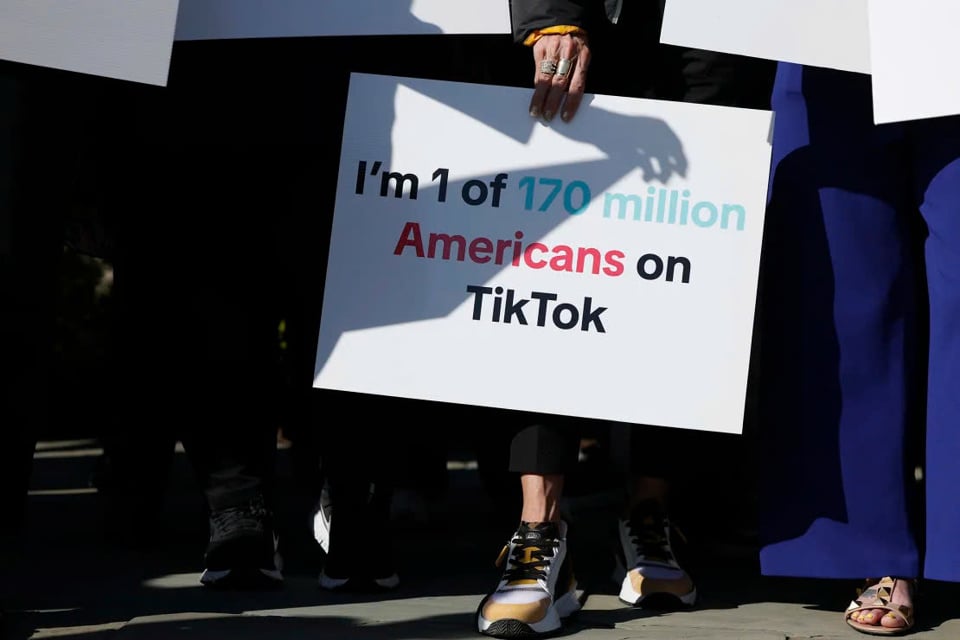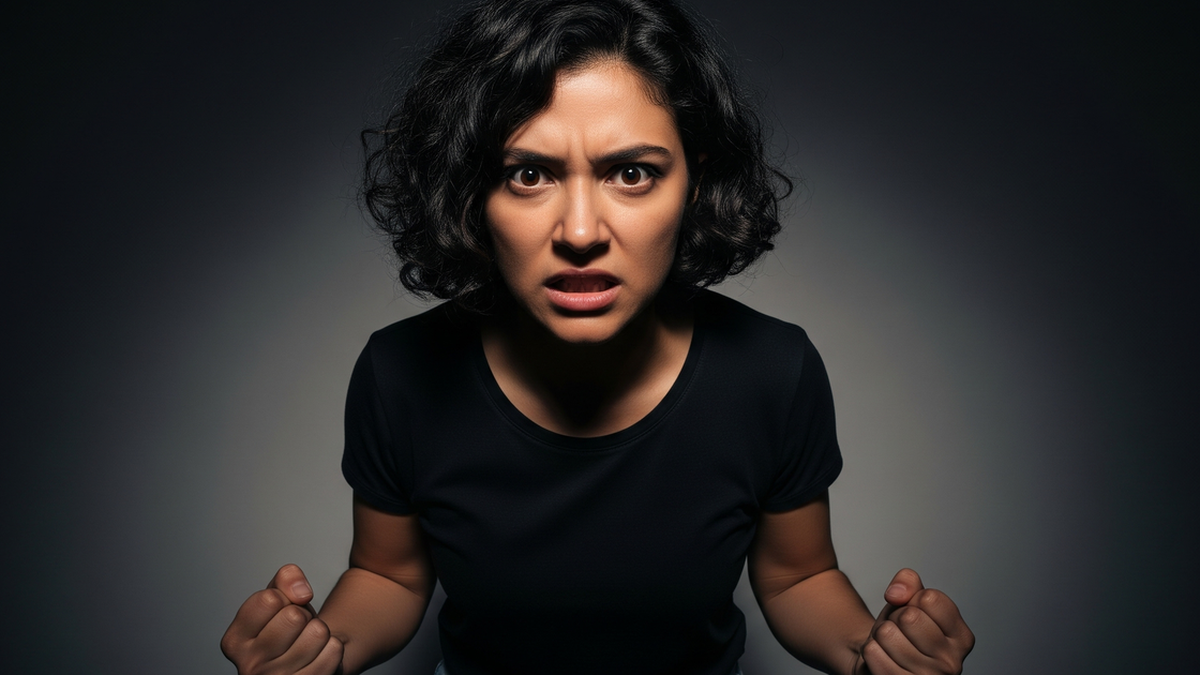The remarkable development is the result of a law signed into law by US President Joe Biden in April 2024. The law, called the American Citizens Protection Act, gives ByteDance until January 19, 2025, to divest and sell TikTok.
If the company fails to comply, TikTok will not be allowed to appear on app stores like the App Store or Google Play in the US, and users in the US will not be able to update the app.
National security or freedom of speech?
By forcing ByteDance to divest TikTok, the bill is meant to create a more level playing field for the social media industry in the US, allowing non-foreign-owned companies to thrive without being affected by international political factors.
But in reality, the American Protection Act also aims to prevent ByteDance, a Beijing-based company, from collecting and using personal data from American users. This stems from concerns about ByteDance's ability to access data on more than 170 million users in this country.
Washington officials fear that the data, which includes users' location information and private messages, could be used for espionage or manipulation. The US Justice Department has said that as a Chinese company, ByteDance could be forced to share user information with the Beijing government, creating a "profound and broad national security threat".
The US Supreme Court held a 2.5-hour hearing on January 10 to consider TikTok and ByteDance’s appeal of the American Citizen Protection Act. The hearing focused on assessing the constitutionality of the law, specifically whether it violates the First Amendment of the US Constitution, which protects freedom of speech.

TikTok argued that the Americans with Disabilities Act was an unprecedented restriction on the free speech of American users, and that requiring ByteDance to divest TikTok was not a reasonable measure to protect national security. The company also asked for a temporary moratorium on the law to allow more time to consider its long-term implications.
No decision was immediately made after the January 10 hearing, as the US Supreme Court still needed time to weigh the balance between national security and freedom of speech, according to reports. However, observers said the justices appeared to be leaning toward supporting the ban.
"Lifebuoy" from the tycoons
If the ban goes into effect, TikTok will be removed from app stores like the US App Store and Google Play Store. TikTok users in the country will still be able to access the app, but they will not receive security updates and bug fixes, making the app gradually unusable.
Faced with the above scenario, Reuters news agency revealed that TikTok plans to proactively stop operating in the US on January 19, if the country's Supreme Court upholds the ban.
In this context, a number of large businesses and investors have expressed interest in acquiring TikTok, in order to help the application continue to operate in the US market. Project Liberty, an organization led by billionaire Frank McCourt, has made an official offer to buy TikTok's assets in the US. The organization has announced that it has a verbal commitment to invest up to 20 billion USD and is backed by famous technology investor Kevin O'Leary.
Meanwhile, sources from Bloomberg said that ByteDance is considering the possibility of selling TikTok's US business to billionaire Elon Musk as a backup plan in case the app cannot overcome the ban from the Washington government.
In this scenario, social network X would control and operate TikTok’s operations in the US, and would combine the two platforms. That could both boost X’s efforts to attract advertisers and leverage the massive amount of data TikTok generates for xAI, Musk’s artificial intelligence company.
Another factor that could affect TikTok's future is Donald Trump's inauguration as US President on January 20. Despite trying to ban TikTok during his first term, Trump recently called on the US Supreme Court to delay the implementation of the Americans with Disabilities Act to seek a "political solution".
Some sources even revealed that Chau Thu Tu - CEO of TikTok, had a private meeting with President-elect Trump last December, raising hopes of the possibility of intervention to "rescue" this application.
However, no acquisition deal involving TikTok has been officially announced to date.
The astonishing "migrations"
Notably, while waiting for the final decision of the US Supreme Court, a series of TikTok users in this country have flocked to alternative applications, especially Chinese platforms.
RedNote (also known as Tieu Hong Thu) - an application considered a copy of Instagram in the country of a billion people - has for the first time reached the position of the most downloaded free application on the iOS operating system and entered the top 10 on the Google Play Store app store.
The hashtag "tiktokrefugee" on RedNote has attracted more than 60,000 posts and 51 million views in a short time, in the context of a large user force from TikTok all calling themselves "TikTok refugees" when starting to use this platform.
Shares of Chinese companies with close ties to Rednote saw significant growth on January 14, Bloomberg reported. These included advertising design firms, digital marketing service providers, and even consumer brands known for promoting their products on the social media platform. RedNote’s user-friendly interface, integrated shopping features, and active user community have made it appealing to U.S. users.
Lemon8, another Chinese social media app, has also seen impressive growth since TikTok faced the threat of being banned in the US. According to data from Sensor Tower, Lemon8's downloads on both iOS and Android tripled as of January 13, 2025, topping the free iPhone apps chart on the US App Store.
However, since it is also owned by ByteDance, Lemon8 could face similar concerns as TikTok regarding data security and user privacy, especially in the context of stricter US regulations. If the bill requiring ByteDance to divest TikTok is passed, Lemon8 could also be affected by similar regulations.
According to a Pew Research Center survey, only 32% of Americans support a ban on TikTok, reflecting a divide between the government’s national security concerns and Americans’ social media habits.
The US Supreme Court's decision in the coming days will not only affect TikTok's future in the US, but could also reshape how apps originating from Washington's rival countries are regulated.
Source: https://kinhtedothi.vn/so-phan-chi-manh-treo-chuong-cua-tiktok-tren-dat-my.html





































































































Comment (0)